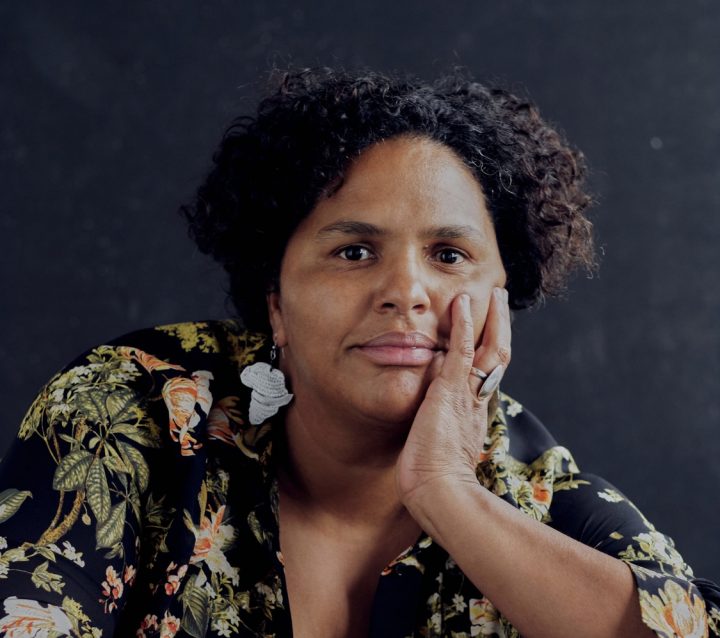Please tell us your story! How did you get to where you are today?
This is always an interesting question for me, as I feel one’s story is ever evolving in all the moments we get to live, but as they say in the marvel movies (or at least I think they do..) my ‘Origin Story,’starts in, Durban, South Africa where I was born. The youngest of five kids, my incredible parents who to this day are my inspiration and heroes, moved us to Australia in the late 70’s. They wanted a different life for us other than the apartheid South Africa was offering at that time. We travelled and finally landed in Sydney’s Northern Beaches (quite the culture shock from life in Durban,) to initially stay with fellow some South African family friends, there were 11 of us all living in a 2-bedroom flat, until my parents got us settled in our own place. This was my first memory of being able to contextualise the saying ‘by any means necessary,’ and what the grit of just doing what needs to be done to get to next level looks like.
My childhood was filled with love, music, laughter, adventures with the neighbourhood kids, cousins, and everything in between. It also had its challenges, the detail of which isn’t important in this context, and none of which I’d change, as it’s part of what’s shaped me into the person I am. From an early age I had developed an insane amount of curiosity about learning to have empathy for people, sociology, how we all fit together or don’t. Being an observer first, played a major part in my path’s evolution. At school I loved History and English, as I believe we must have a need to know from where we come, to know where we are, future possibilities and where we’re heading. In the 90’s when I graduated from the all-girls catholic school, which was very pro university, I did what I thought I was meant to do, go to Uni, get a degree and get a job. I tried that, but the Universe had other plans for me and it didn’t pan out, as I became quite ill and had to drop out. Things don’t happen to you, they happen for you and had that not happened, I wouldn’t be doing the work I love now. Growing up listening to my dad’s love of geography, the world, politics, how it all works, developed my love for exploration and travel. So that’s what I did for a short stint while trying to work out, what now? I bought a ticket to Europe, where I explored for a little while and then came home. I got a job that’s still to this day one of my favourites, at the local video shop, and was fed one of my other loves; movies. Getting to hang out, watch them, while chatting with folks and seeing what movies they chose was super cool.
I then found myself wandering into the wonderful halls of APRA AMCOS. For those not familiar with the business, it’s a member owned organisation, whose core purpose is to support people who write songs and for the publishing companies that sign them, get the royalties that are owed from the use of their music in a variety of ways. For example, when you go to see your favourite band live, hear music in tv and film, in your local café, bar, restaurant, getting your hair done, hit the gym, stream on Spotify etc.
This is a magical place of complex copyright law, song metadata, music rights management, royalty payments, amid a zany bunch of musicians and music fans. This has enabled me to work in a job alongside incredible people, that support music creatives behind the scenes, where I love to be, doing the work, and was a dream to me and a key reason I’ve stayed for 20 years. The majority of those years I spent time working with publisher members, leading a great team in the membership division, in order to deliver high quality service for those stakeholders. This gave me great insight into the inner workings of publishing contracts, large scale data files, copyright (who wrote and publishes the song) & royalties (how much do we pay) and the back-end infrastructure of how complex systems work.
Most recently, as challenging as Covid times were, it delivered a gift for me to slow down, re-set, reflect and review what might be next for me. I knew I didn’t want to leave APRA, but I wanted to explore how I might use my skills to contribute to the business and broader music ecosystem in another way. An opportunity arose, for the last 3 years I’ve been working in the People and Culture team assisting the business development and implementation of an Equity Action Plan. Another very significant part of my story, is that I’m so fortunate to be the mother of two amazing teenage daughters, who keep me grounded and ever self-reflective, as they are the mirrors for me, for which I’m thankful for every day.
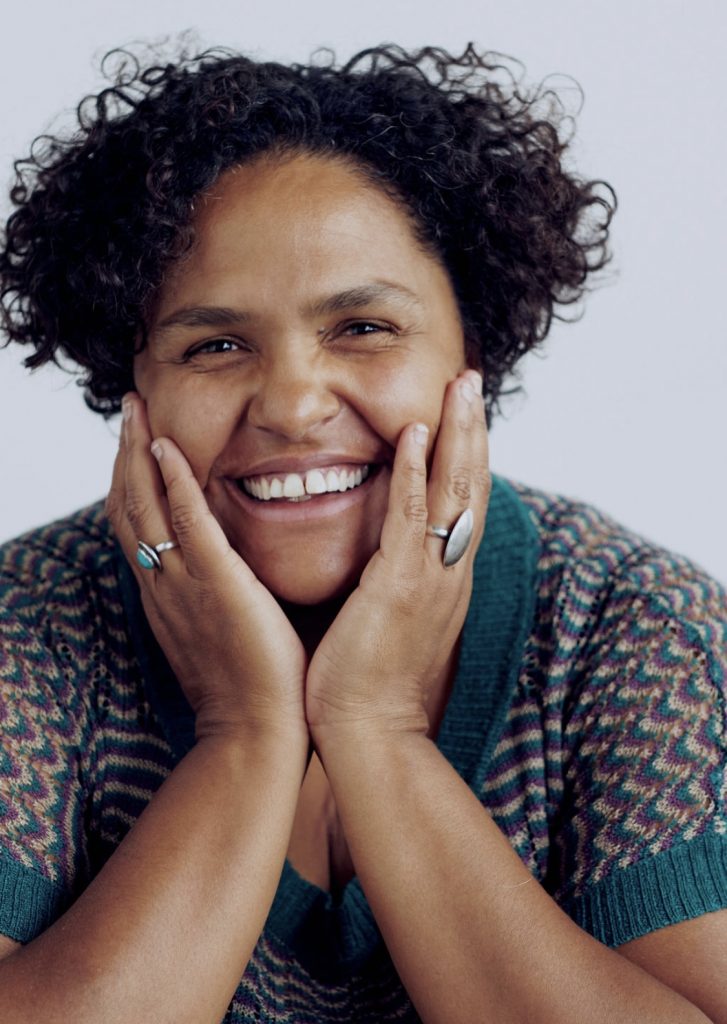
Tell us about your role with APRA AMCOS, what does your day-to-day entail?
My current role at APRA AMCOS is Senior Manager, Culture and Engagement within the People and Culture team (the HR function). The focus of my role is to help the business bring into reality its Equity Action Plan, which is an intentional look at how to increase equity for communities who historically haven’t had it, and imbed this across all areas of the business, from Community Engagement, Comms and Marketing, Policies, Leadership and Recruitment. My day to day doesn’t really look the same on any given day. It consists of holding space for conversations that can be challenging as we’re unpacking systemic issues that cover historical and societal injustices that have impacted certain communities. It also entails building a relationship and trust with both the staff and external stakeholders; for people to feel ok to step in and work out solutions together, even if they don’t feel they know the right way.
It’s working across the business to establish what education, training and capacity building is needed, to try look at solutions on a systemic level for historical problems that has caused a skewed power imbalance. To create resources and templates that the business can use, that sets out core community engagement principles, as co-designed by a group of the membership on how they want to participate in the APRA AMCOS ecosystem and help educate and empower their communities on improved ways to participate. Also to design and implement processes on how to track, measure, report on the work in collaboration with multiple teams; the part I really love, teamwork and collaboration to come up with shared solutions. In short, I get to spend time with incredibly dope and interesting people who I get to learn from every day both internally and externally.
How did you get your start in the music industry? Any advice for people wanting to work in your field?
My start in this industry was by pure chance. After my attempt at Uni that didn’t work out, and my time I spent overseas trying to figure things out, I came back and did a government program where you could learn graphic design. To this day I have no idea why, as I had never shown creative talent in that way, but I’ve come to realise it’s great to try out many things and to see which is most aligned with who you are as a person. It’s what I tell my daughters, and it’s what I am now practicing more in later life. I wish I had embraced it a bit more in my younger days, but it’s never too late. There was a tiny ad in a newspaper (showing my age now), for a reception and admin support role at a company called APRA. I had never heard of them, but one of the girls I was doing the course with knew enough to know it related to music and knew my love for that, so she suggested I should apply. So I did, and fortunately I was successful.
That role allowed me to get a helicopter view of the different teams and areas of the business to see where I could best add value. I was curious, worked hard, showed interest and initiative, and wanted to be helpful, which was embraced by management. Through this I secured various jobs over the years in different teams to build a deep understanding of the business. This helps me today when speaking to people wanting to know how it all works. My advice to others, get to know yourself and what your unique talents and gifts are, hint, it’ll be the thing that feels the easiest, you love deeply, doesn’t feel like work, and you keep getting pulled towards even when you think you need to be doing something more ‘sensible’ and ‘stable’. Then double down in spending as much time as you can doing that thing, mastering that skill and talent and the rest will come. Don’t be afraid of hard work and to start at any entry point that gets you close to where you want to go. In short, I’m not big on giving advice, as it’s so subjective and only you know what’s best for you, so trust that, focus on drowning out the noise that we’re all so often operating in and is often taking us away from our purpose and path. For someone not big on giving advice, I certainly warbled on a bit haha. As for working in my field, it’s challenging, fun and rewarding. If you’re someone that loves to help people, be a behind the scenes cheerleader, connector of humans, then you should consider a role in People and Culture or any stakeholder engagement role within the industry.
I encourage people to investigate the history of genres like Jazz, Gospel, Soul, RnB, Hip Hop and others, to learn the rich cultural connection, so the appropriate acknowledgements and inclusion of people from African Diaspora communities can continue to increase here. When the representation isn’t there, it causes ongoing hurt, but we have an opportunity to learn and grow together.
Do you feel that higher education is a necessary step to enter the music industry?
I’d always been a huge music fan but had no idea this whole ecosystem existed that provided infrastructure for people making music to have a sustainable career in it. I don’t think you need higher education to get started, I didn’t go to Uni. I worked hard, showed initiative, treated people with kindness, respect, compassion and had a keen interest and love for what I do. I’m a firm believer of that being a great foundational start. It’s not to say don’t value higher education, I feel if people were encouraged to focus on working out how to be introspective, figuring out what they love and have skills at, double down on that and then work out what the gaps are and work towards skilling up in that area, we’d broaden the opportunity for people who could see a pathway. If that’s higher education for some people, and that’s your path, follow it. I believe there are multiple paths, including mentorships, internships and just putting yourself in the vicinity of opportunity, all of which needs to be partnered with hard work, strong work ethic, resilience and consistency.
What issues/potential issues do you think the current Australian music industry faces? Specifically in your realm of work.
The challenging times covid presented was a lack of clarity and understanding from Government on how the sector worked, so when the bottom fell out from the Music Industry during lockdowns, the proposed financial Covid relief didn’t benefit most music creatives and workers surrounding them. With any challenge comes opportunity and what I saw evolve from that, in response, was an industry that came together to support the broader ecosystem of music creatives, musicians, managers, the crew, venues, booking agents, festivals and demanded government focus, support and intervention, to acknowledge and see this sector as the billion-dollar contributor to the national economy it is. We’ve since seen the Labor Government’s National Cultural Policy – Revive, start to come to life with the creation of Creative Workplaces and Music Australia, in response to continue addressing the long-standing systemic issues of discrimination, exclusion, bullying, racism, sexual harm that exists within the music industry.
With my realm of work that aims to focus on how to increase equity and hold space for often challenging conversations. I see an opportunity, where these vehicles that have been established, alongside the broader music industry, can try use influence of powers to ensure the inclusion of the voices who’ve not always had the opportunity to be in the positions of influence. Essentially, to be part of the decision making or to be part of the discussions at these tables when the decisions and solutions are being formed. A fundamental human right is to have agency over our lives and have the knowledge, resources, and opportunities to create a life that is fulfilling. While there’s still a long way to go, I remain hopeful that change is happening, because I can see the difference from when I started over 20 years ago.
What would you tell your younger self if you could tell them anything?
Listen and trust yourself more. Don’t be discouraged by others’ opinions about what your path should be. Embrace and celebrate your gifts of caring, nurturing to connect and cultivate meaningful networks and relationships. Being an introvert is ok, lean into it. You have all the inner gifts and tools you need to contribute to live a purpose filled life.
What has been your proudest achievement so far?
Hmmm, tricky. I’m gonna cheat a bit and have 2. Building a 20+ year career with APRA AMCOS, where I’ve seen the business evolve with the times and keep at its centre the people and community we serve and the people on staff that get it all done. Leading a team for majority of that time, working to help guide and develop staff to reach their potential. The culture is something pretty special, that can’t really be described sufficiently. I’ve had the great fortune to have and still work with people who have supported me and seen my potential before I did, so to be able to sustain, develop and grow doing that makes me proud. Everyone needs great mentors and I’ve had many at APRA AMCOS. That experience has created a launch pad to the other achievement, which is being one of the founding members of the Black Music Alliance Australia (BMAA). Which is still in early stages and in grassroots, we’ve made some good strides and are growing momentum. We work towards educating, elevating, and celebrating people from the African diaspora working within the music ecosystem. The ability to hopefully be a guide for others wanting to come through and learn, grow and be their best selves, that makes me proud.
Where do you go to see shows and who are some local artists, you’d recommend we keep an eye on?
Given my age, ahem, I’m a bit past the scene of being able to see many shows on the regular…I’m normally in bed by 8.30pm, which is when most acts are just about to come on haha, but when I do, the Red Rattler in Marrickville hosts some incredible nights. Oh gosh there’s so many artists to check out.
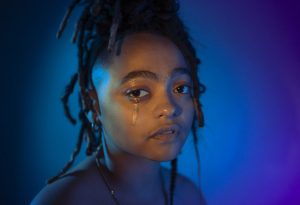
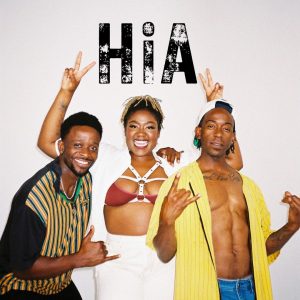
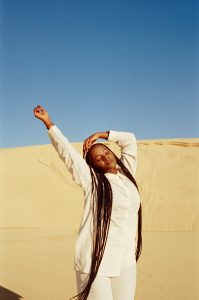
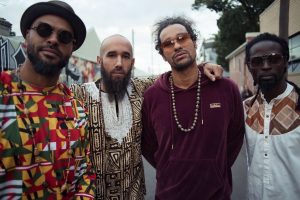
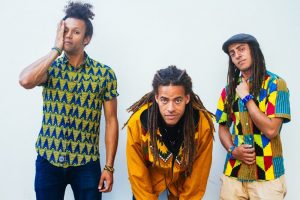
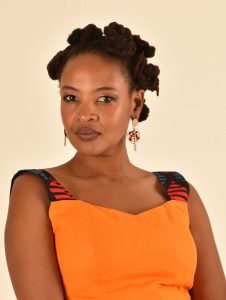
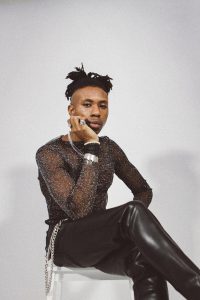
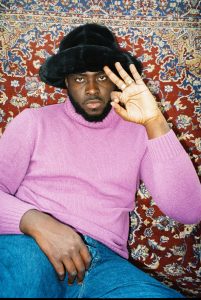
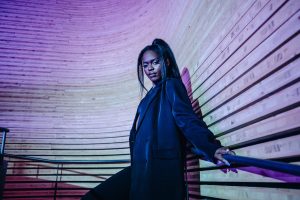
If you’re someone that loves to help people, be a behind the scenes cheerleader, connector of humans, then you should consider a role in People and Culture or any stakeholder engagement role within the industry.
What does true allyship look like to you?
The ability to connect on a human level, deeply listen and be self-reflective. To respect skills and lived experiences you may know nothing about and to be led and guided by the people with those skills and lived experiences; as it relates to solutions for how to shift and improve experiences for them. They are the experts in what’s best for them. Even if we don’t know or are fearful of saying or doing the wrong thing, we show up anyway and keep trying to build the bridges that hopefully will contribute to the systemic changes needed. True allyship is not for individual gain, but for the betterment of a wider collective community.
What advice do you have for BI&POC folk who are coming up in the industry?
You already have the unique gifts, skills and talents you need to succeed in life. Get crystal clear on what those are so you can nurture and keep growing in the direction you were born to, and follow your purpose. Keep showing up and building networks where you feel safe to thrive. Not too comfortable that growth isn’t happening, but where you are surrounded by people who share similar values, and alignment for contributing towards building a strong, beautiful, thriving music community where all people can participate and thrive. You can have different opinions and perspectives and still work towards a common goal.
Don’t get hooked on trying to convince people to your way of thinking, it’s ok to have differing views on things, working towards equity, access and inclusion is a long-term commitment and requires collective effort. I see it as a baton passing exercise to some extent as well, because the energy drain is real and we sometimes need new ways of seeing and doing to get things to another level.
True allyship is not for individual gain, but for the betterment of a wider collective community.
Does cultural appropriation exist in the Australian Music Industry?
Cultural appropriation versus appreciation is a thin line that’s often walked by people sometimes unbeknownst to them and can happen across many cultures and genres. I know some people may want this binary either-or answer, but I just don’t see the world that way. Having said that, I think here in Australia the understanding of the historically Black genres and their connection to the African Diaspora is limited but hopefully evolving in the right direction.
How do you feel about historical Black genres & its current state in Australia?
There are multiple examples, but looking at RnB, as one example, perhaps people don’t know that it stands for Rhythm and Blues and that the genre of music predominantly originated from American slavery times, for the Black people who were oppressed, as a way to use music and their innate cultural talents, to create a way to endure and overcome extreme oppression. I’m by no means an expert on this, there are many musical historians who are, so won’t speak more than that really, but I encourage people to investigate the history of genres like Jazz, Gospel, Soul, RnB, Hip Hop and others, to learn the rich cultural connection, so the appropriate acknowledgements and inclusion of people from African Diaspora communities can continue to increase here. When the representation isn’t there, it causes ongoing hurt, but we have an opportunity to learn and grow together. There’s certainly been a shift which is positive, we just need to keep going so the equity and inclusion can continue.
What does music mean to you?
Music means so much to me. It’s this beautiful art form that can channel the human range of emotional experiences to help heal, express joy, pain, inspire movements and everything in-between. The power and impact music can have is actually indescribable and not measurable to me, I just know I don’t ever want to be in a world where it doesn’t exist, but rather is valued, celebrated and the people creating it, are championed for the creative, generous geniuses they are. Music keeps me hopeful for the future.
Have you experienced racism within the music industry?
This is such an interesting and complex question. The main takeaway that I’d like people to understand is that there’s many levels of racism and from my perspective, as I don’t purport to speak for anyone else, it’s the systemic level that needs to have the focus as it has the largest impact and the hardest to shift. For me, it’s not the misunderstood individual who might use racial slurs in person or online, that’s at least upfront, and you know what you’re dealing with and can for the most part ignore, I have deep empathy for them. I’m most concerned about the systemic level, where people can’t see how they contribute to upholding it as it’s often in this undercurrent frequency and unconscious. Even people with the best of intentions can have an unintended
negative impact, that can sometimes show up in a veil of saviourism and stems from stereotypes about communities. To counter that, try get out and meet people from communities who are not in your day-to-day sphere, and you’ll find there’s more in common than not. For me, being on the end of racism has given me great insight, empathy and resilience to navigate this thing called life. As frustrating as it can get, I’ll always be a bridge builder and will call people in rather than call them out and then draw a line if my energy is being drained, to focus on people where I can feel a shift can occur. The way I overcome, is by being radically self-reflective, I always start within, with self-compassion and self-love that then allows me to extend that for others, because it’s going to take a community and collective effort to change the power dynamics that systemic racism tries to uphold. Even on my lowest days, when I’m the most frustrated, angry, sad about things, hope remains. My main guiding light is a Maya Angelo quote, “People will forget what you said, people will forget what you did, but people will never forget how you made them feel.”That’s how I try and walk through this world, trying as best I can to not leave people feeling worse off than before our encounter, and being human doesn’t always happen, so being able to be sorry as well.
A fundamental human right is to have agency over our lives and have the knowledge, resources, and opportunities to create a life that is fulfilling.
What is the best piece of life advice you’ve ever received?
This too shall pass.
